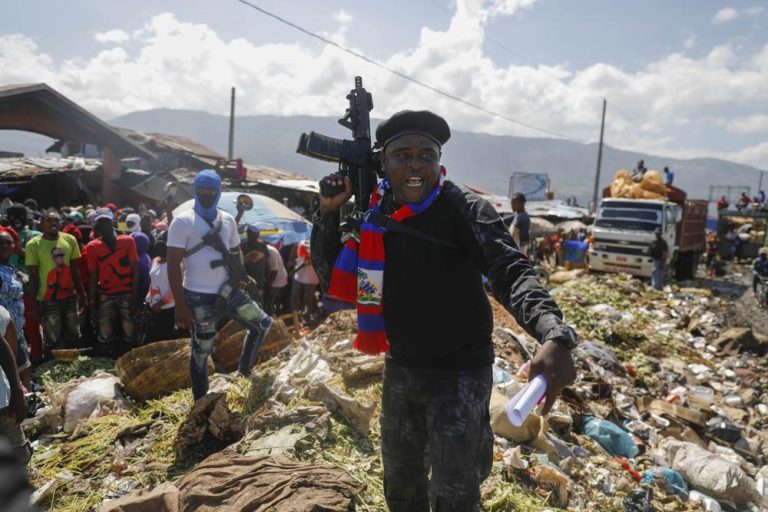
(AP) — A year has passed since President Jovenel Moïse was assassinated at his private home where an elite security team was supposed to protect him. Not only have authorities failed to identify and arrest all those who masterminded and financed the killing, but Haiti has gone into a freefall as violence soars and the economy tumbles.
Many have fled Haiti in the past year, making potentially deadly voyages aboard rickety boats filled with hundreds of Haitians that have repeatedly turned up on the shores of nearby nations. They chose to face that risk rather than go hungry and fear for their lives, as do many people who have stayed behind.
“Every day is a fight. It’s a fight to stay alive. It’s a fight to eat. It’s a fight to survive,” said Hector Duval, a plumber who now drives a motorcycle taxi to make more money since Haitians are afraid to board slow-moving buses and chance being killed by warring gangs.Killings have soared and thousands of families have been driven from their homes by gangs battling over territory ever since Moïse was shot to death shot last July 7 at his home near the capital, Port-au-Prince.
An overwhelmed government is struggling to crack down on the gangs and reduce a spike in kidnappings linked to them. At the same time, attempts to form a coalition government have faltered in recent weeks and efforts to hold general elections have stalled, leaving many wondering where Haiti is headed.
Prime Minister Ariel Henry has promised to create a new provisional electoral council, which is responsible for organizing general elections, but that hasn’t happened. There hasn’t been a Parliament because the government failed to organize elections in 2019, and Moïse dismissed most lawmakers in early 2020 and ruled by decree for more than a year before he was killed.
Meanwhile, hopes for a trial for those arrested in the killing of the president have been derailed by the resignation of four judges appointed to oversee the investigation, with some saying they feared for their lives.
Henry himself has recognized the uncertainty hovering over the case. Last month, he tweeted: “I have the unpleasant feeling that those who conceived and financed this macabre plan are still running the streets and are still escaping our judicial system.”
More than 40 people have been arrested in Haiti, including high-ranking police officers and a group of former Colombian soldiers. At least two of three suspects detained outside Haiti were extradited to the U.S., where they face charges including conspiring to commit murder or kidnapping outside the United States.
Many of the soldiers’ relatives in Colombia are demanding a proper judicial process and an improvement in dire prison conditions.
“A lot of time there is no food, no potable water,” Nataly Andrade, wife of retired Col. Giovanny Guerrero, told The Associated Press. She visited him in prison in May and was alarmed at how much weight he had lost. In recent weeks, at least eight inmates in southern Haiti, not connected to the Moïse case, have died from heat and malnutrition.






